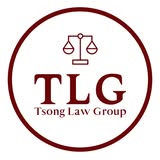Massachusetts surrogacy laws & gestational process guidelines

- Is gestational and traditional surrogacy legal in Massachusetts?
- What specific surrogacy requirements apply in Massachusetts, if any?
- What must be included in a legally valid Massachusetts surrogacy contract?
- What factors influence the cost of surrogacy in Massachusetts, including s compensation and agency fees?
- What influences how much surrogacy costs and surrogates get compensated in Massachusetts compared to other states?
- How friendly is LGBTQ+ surrogacy in Massachusetts?
General Surrogacy context in Massachusetts
Massachusetts has no surrogacy laws created and approved by the state legislature. Instead, surrogacy in Massachusetts has a process based on three published surrogacy cases, established by the highest court in Massachusetts: Hodas v. Morin (2004); Culliton v. Beth Israel Deaconess Med. Ctr.(2002); R.R. v. M.H. (1998). Surrogacy is thereby a common and accepted practice in Massachusetts.
Although the following guide can give you a better understanding of the general rules and regulations of surrogacy in Massachusetts, it is not meant to be used as legal advice. It is important to consult with an experienced attorney to guide you through your unique journey.
Below is a list of some of the most frequently asked questions about surrogacy in Massachusetts.
Is Gestational Surrogacy Legal in Massachusetts?
Yes. Gestational surrogacy is permitted in the state pursuant to Massachusetts published case law. Surrogacy is now a common and accepted practice in Massachusetts.
Is Traditional Surrogacy Legal in Massachusetts?
Although there are no surrogacy laws in Massachusetts that prohibit traditional surrogacy, Massachusetts courts typically will NOT enforce a traditional surrogacy agreement. This surrogacy process is often treated as an adoption under state law. This means a traditional surrogate cannot consent to relinquish her rights until four days after the child is born, although she can immediately place the child with the intended parents. If the Intended Father is not related to the child, both intended parents will need to complete a full adoption.
Is Compensated Surrogacy Legal in Massachusetts?
Yes. Compensated gestational surrogacy is legal in Massachusetts; this is something that is established when the surrogacy contract between surrogates and intended parents is drafted. In addition to their base pay, surrogates are compensated for their time, the medical risks they accept, and the list of expenses below:
- Mock cycle compensation
- Embryo transfer compensation
- Starting medication compensation
- Monthly allowance for miscellaneous expenses
- Monthly Housekeeping budget
- Maternity clothing budget
- Medical expenses
- Travel to and from clinic/hospital
- Lost wages if applicable
- Child care if bed rest is required
- Term life insurance
- Medical insurance
- Independent legal counsel
- Psychological counseling
- Other depending on agency
Creating a Massachusetts Surrogacy Contract
There are no surrogacy laws in Massachusetts regulating what must be included in a surrogacy contract. However, intended parents and their surrogate must be represented by separate surrogacy lawyers to ensure that the rights and interests of each party are protected. These attorneys will negotiate an agreement that addresses at least the following:
- Rights and responsibilities of each party
- Potential risks and liabilities for each party, and steps to follow should one occur
- Surrogate compensation and other financial details, including surrogacy insurance
- Contact expectations
- And more
Determining Legal Parentage in Massachusetts
Pre-birth orders are available to intended parents regardless of their marital status, sexual orientation, or genetic relationship to the child. Massachusetts courts have granted pre-birth orders to married and unmarried couples, single parents, and same-sex couples. If a pre-birth order is not obtained, intended parents may need to complete a post-birth adoption or sign a Voluntary Acknowledgment of Parentage to establish their parental rights.
Most Common FAQ about surrogacy in Massachusetts
Below is a list of some of the most frequently asked questions about surrogacy in Massachusetts:
Are Surrogacy Contracts (Whether Compensated or Altruistic) Enforceable in Massachusetts?
Yes. Surrogacy contracts are enforceable in Massachusetts, as established by case law. It is important to work with an experienced surrogacy attorney to ensure that all legal requirements are met and that the contract is legally binding.
Are There Any Particular Laws for Parents Outside the U.S. Who Complete a Surrogacy in Massachusetts?
No. International intended parents are subject to the same Massachusetts laws as domestic intended parents. It is important, however, that intended parents from another country speak with an immigration lawyer to ensure they follow the proper legal steps for taking their child home.
When do Intended Parents Need to Complete an Adoption After Birth?
If a pre-birth order is not obtained, intended parents may need to complete a post-birth adoption to establish their parental rights. This is especially true in cases where there is no genetic connection between the intended parent and the child.
Does Massachusetts Allow Second-Parent Adoptions?
Yes. Second-parent adoptions are available in Massachusetts. Unmarried intended parents who cannot establish their parentage through a parentage order can complete a post-birth adoption. Married intended parents can complete a stepparent adoption.
What Happens in Cases Where Intended Parents Use a Donor Egg, Sperm or Embryo?
Massachusetts allows pre-birth orders for intended parents who use a donor egg, sperm, or embryo. The use of a donor does not affect the ability of intended parents to obtain a parentage order before the birth of the child.
Same Sex surrogacy in Massachusetts
Is Same-Sex Surrogacy Legal in Massachusetts?
Yes. Same-sex couples and LGBT+ intended parents have the same legal rights and will experience generally the same surrogacy process as opposite-sex couples, with the exception of likely requiring an egg donor or sperm donor to complete the IVF procedure.
Are There any Additional Laws Impacting Same-Sex Parenting in Massachusetts?
No. There are no additional laws impacting same-sex parents in this state.

Molly O’Brien, Esq. – International Fertility Law Group
LA, NY, FL, Beijing
(323) 331-9343
Molly@iflg.net
Visit the website: http://www.IFLG.net

Modern Fertility Law
Milena O’Hara Esq. (Speaks French, Licensed in CA and WA)
13527 Ventura Blvd., Sherman Oaks, CA 91423
(818) 783-111 EXT. 11
milena@modernfertilitylaw.com
Visit the website: www.ModernFertilityLaw.com
PRACTICING SINCE 1997 IN THE AREAS OF SURROGACY, EGG DONATION, EMBRYO DONATION, SPERM DONATION

Michelle A. Keeyes, Managing Partner
Reproductive Law Center
8340 Allison Ave, Ste A
La Mesa, CA 91942
(619) 464-6640
Visit the website: http://www.rlcsd.com/keeyes.html

Tsong Law Group
Ralph Tsong / Rainie Fang
(Licensed in CA/AZ/OK/NY/WA)
Visit the website: https://tsonglawgroup.com
Phone: (562) 274-7807
Email: ralph@tsonglaw.com, rainie@tsonglaw.com
Ask about GSA drafting discount exclusive to SurrogateFirst intended parents.
Reproductive law Practitioner in Massachusetts
Molly O’Brien, Esq. – International Fertility Law Group
LA, NY, FL, Beijing
(323) 331-9343
Molly@iflg.net
Visit the International Fertility Law group to know more details
